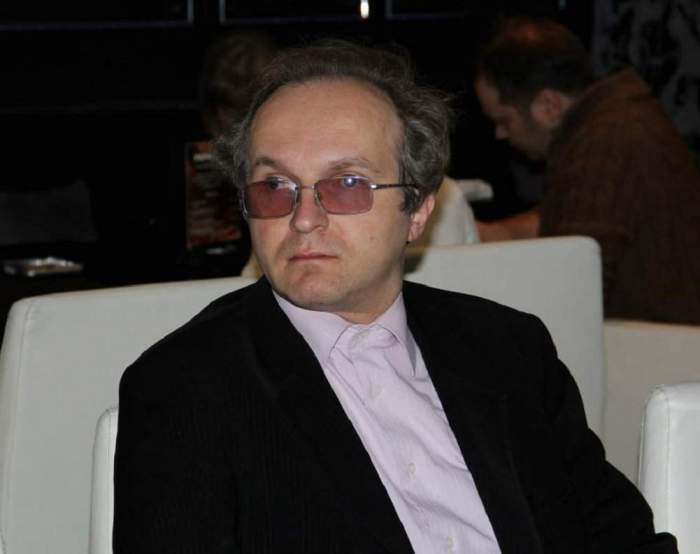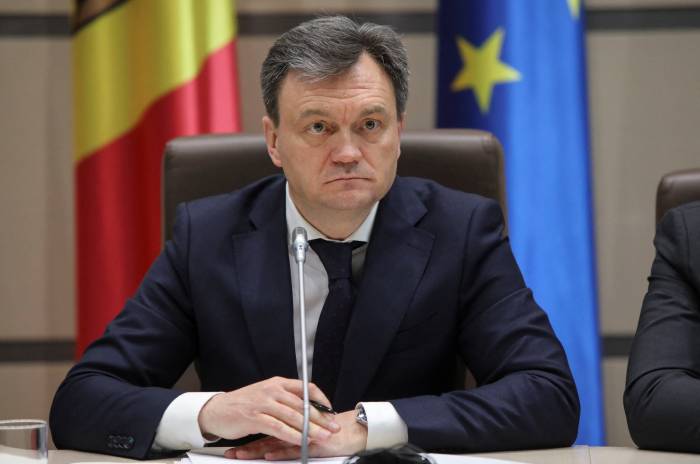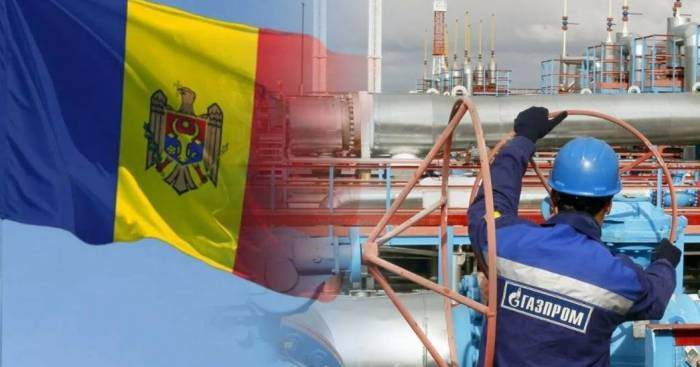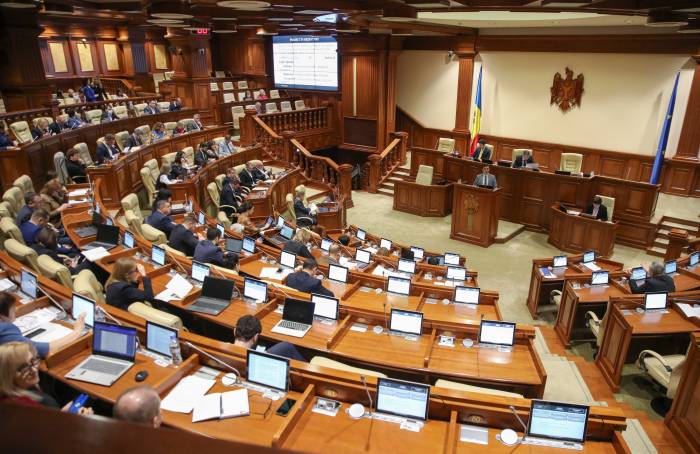By Samir Muradov
News.Az presents an interview with Ruslan Shevchenko, a political analyst from Moldova and Doctor of Historical Sciences.

Photo source: Social media
– What are the main reasons behind the vote of no confidence in the PDS government? What specific actions or inactions by the authorities prompted such a reaction from the opposition?
– The vote of no confidence in Dorin Recean’s government stems from the looming threat of an energy collapse in Moldova if Russian gas supplies through Ukraine are halted. This scenario could lead to a massive surge in the prices of essential goods, food, and services. This crisis results from the government’s indifference to addressing the issue over the past several years. As early as 2022, Ukraine publicly announced its plan to cease the transit of Russian gas upon the expiration of the existing contract with Gazprom, which ends on December 31, 2024. Despite having over two years to prepare for this situation, Moldovan authorities failed to explore alternative gas supply routes or seriously prepare the population for such a scenario. They also made no significant effort to transition to purchasing gas exclusively from European exchanges, conducting only a few trial transactions.
Instead, the authorities reassured the public with misleading claims that the “gas issue” had been “completely resolved,” the “gas market fully diversified,” and that Moldova was now “entirely independent of Gazprom”—an unprecedented achievement in the country’s history. Officials assured that consumer tariffs would not increase. These assurances were echoed by Prime Minister Dorin Recean, former Deputy Prime Minister Andrei Spînu, who had negotiated the gas agreement with Gazprom, and the recently dismissed Minister of Energy, Victor Parlicov. Lawmakers from the ruling party also perpetuated these claims, asserting that Moldova would no longer have to “bow to Gazprom.”
In the summer of 2024, when European gas prices were significantly lower, Victor Parlicov and energy “experts,” including Sergiu Tofilat, a member of MoldovaGaz’s supervisory board, insisted there was no reason to worry. Tofilat even argued against urgency, claiming, “Gas can be bought in winter—who says it’s more expensive then?” Such misguided and ill-informed optimism persisted until November 2024. At that point, the authorities abruptly realized that, starting January 1, Moldova might truly be cut off from gas supplies, raising the question of what to do next. The consequences would not only devastate the population but also impact the upcoming 2025 parliamentary elections.
In a last-minute effort, Energy Minister Victor Parlicov was dispatched to St. Petersburg. However, Gazprom presented two conditions: first, gas would only be delivered to the Russian border with Ukraine, leaving Moldova to arrange its own transportation. Second, Gazprom demanded the settlement of a $709 million debt accrued since the 2000s before any new supplies could be negotiated. Parlicov, citing a Moldovan government audit of Gazprom’s operations, refused to pay this amount, offering to settle only $8.7 million. The negotiations collapsed, and Parlicov returned empty-handed as time continued to run out.
Blame-shifting ensued. On December 5, 2024, both Parlicov and Tofilat were dismissed by the government, and Prime Minister Recean temporarily assumed the role of Energy Minister. The government also urged Parliament to declare a state of emergency in the energy sector starting December 16, 2024. However, the crucial question of where and at what cost gas would be procured for MoldovaGRES remained unanswered.
These failures and the resulting crisis prompted the parliamentary opposition to put forth a vote of no confidence against the government.

image info
Photo: Reuters
– What role does the energy crisis play in worsening the socio-political situation in Moldova?
– In Moldova, the energy crisis directly drives sharp increases in the prices of essential goods and services. A similar situation occurred under the current government in late 2021 and 2022 when prices for basic necessities surged by 1.5 to 2 times, with some items experiencing even greater hikes. Government compensation for gas and utility payments failed to alleviate the situation, leading to inflation exceeding 30%. According to existing legislation, pensions and social benefits should have been adjusted accordingly. However, the PDS, led de facto by President Maia Sandu, chose to raise pensions and benefits by only 15%, effectively depriving the population of what was due. This occurred despite the Moldovan authorities receiving substantial financial support from Western donors to cover the costs of rising gas prices.
This mismanagement caused a significant erosion of public support for the PDS and Maia Sandu, who took no effective measures to prevent the crisis. A similar scenario now threatens to unfold, but with potentially far graver consequences for the ruling PDS and Sandu herself. In the upcoming parliamentary elections, the PDS is unlikely to secure a majority, even before the anticipated price spikes. A steep rise in costs would make such an outcome even more unattainable.
Even potential alliances with parties like Renato Usatîi’s Our Party or Ion Ceban’s National Alternative Movement seem unlikely to save the PDS. This opens the door for left-leaning, openly pro-Kremlin forces to take power, either in a coalition or independently. In such a scenario, Maia Sandu risks becoming a largely ceremonial figure, relegated to lamenting the actions of pro-Russian politicians during appearances abroad.
Thus, the energy crisis has the potential to be a decisive factor in shaping Moldova’s socio-political trajectory. It could trigger not only an economic collapse but also a dramatic shift in the country’s political landscape, leaving the current leadership with little room to recover.
– What are the reasons behind rising gas tariffs and increasing utility costs, for which MP Marina Tauber holds President Maia Sandu responsible?
– It is essential to clarify that Marina Tauber does not accuse Maia Sandu of directly setting gas prices and utility tariffs. Instead, Tauber’s argument focuses on the broader structure of power under the current PDS-led government. According to Tauber, the entire ruling apparatus of the PDS—its parliamentary majority, ministers, department heads, and other key officials—owes its existence solely to Maia Sandu. Without Sandu, it is unlikely that the PDS would have come to power in Moldova. Furthermore, insider accounts within the PDS suggest that no minister, department director, or senior government official is appointed without Sandu’s approval. This level of control, as widely acknowledged even in private discussions, ties Sandu directly to the policies leading to rising prices and tariffs. By appointing officials responsible for these policies and refraining from publicly criticizing them, Sandu is seen as bearing ultimate accountability.
The broader reasons for the increase in gas tariffs and utility costs are tied to a cartel agreement between the PDS, which came to power in 2021, and several companies supplying petroleum products to Moldova. Many of these companies reportedly financed the PDS’s election campaign and subsequently demanded repayment for their support. The government complied, leading to a significant rise in gas prices. In the first months of PDS rule, gas was priced at 4 lei per cubic meter (around 25 U.S. cents). By November-December 2021, the price began to climb, skyrocketing over sevenfold within a year to reach 30 lei ($1.70). This dramatic increase, which started months before the war in Ukraine, triggered a parallel rise in the cost of all goods and services, including utilities, and deepened poverty across the country.
Although gas tariffs later dropped by approximately half, the prices of other goods and services remained unchanged, maintaining the elevated cost of living. Now, as January 1, 2025, approaches, there is a risk that this scenario could repeat. However, it remains uncertain whether the European Union will once again step in to finance compensations for Moldovan households amid another inflationary spike.
Tauber’s accusations reflect concerns that the PDS’s policies and its alignment with vested corporate interests have directly contributed to the ongoing economic struggles, for which Sandu, as the ultimate decision-maker, is held responsible.

Photo: Shutterstock
– What are the potential consequences of passing a vote of no confidence, and how likely is a government change?
– A vote of no confidence typically leads to the government’s resignation, as demonstrated recently by the fall of Michel Barnier’s government in France under similar circumstances. However, the situation in Moldova is starkly different. While the opposition has enough votes (38 out of 101, requiring only one-third) to propose a vote of no confidence, they lack the numbers to pass it. The ruling PDS holds an absolute majority with 62 votes, plus one independent member, allowing them to ignore any attempts by the opposition to bring forth such motions. Consequently, the likelihood of the Moldovan government being replaced due to a vote of no confidence is currently zero.
– What is your response to Alexander Dugin’s claim that Moldova will soon become part of Romania, which in turn will join Russia?
Alexander Dugin, a Russian philosopher and ideologue of Vladimir Putin’s regime and the war in Ukraine, is a controversial figure, even among Russian “patriotic” circles. Many perceive this “prominent modern Russian philosopher-imperialist” as a fanatic with outdated and unrealistic views, making it difficult to take his ideas seriously. The reaction to his recent statement, including in Moldova and Romania, reflects the presence of latent and overt pro-Russian sentiments among certain individuals who cling to a nostalgic belief in Russia’s fading influence.
In reality, there is no basis for Dugin’s claim that Moldova will “soon become part of Romania” or that Romania itself will “join Russia.” The idea of uniting Moldova and Romania lacks popular support in Moldova, with up to 65% of Moldovans opposing it. Among the remaining 35%, most view unification merely as a means of accessing higher EU-standard pensions and salaries rather than as the fulfillment of a national aspiration. Additionally, despite approximately one million Moldovans holding Romanian citizenship, only 60,000 to 70,000 Moldovans actively participate in Romania’s parliamentary, local, or presidential elections. This figure likely represents the true number of individuals genuinely supporting unification.
On a state level, the unification idea is not supported in Romania either. On October 11, 2023, the Romanian Parliament’s Chamber of Deputies overwhelmingly rejected a proposal for unification, with 213 votes against, 1 in favor, 11 abstentions, and 1 non-vote. Furthermore, neither the United States nor the European Union supports the notion of unification, apart from some Romanian advocates, who themselves are divided on the issue. Thus, Dugin’s statement about Moldova and Romania is baseless, provocative, and reflects a lack of understanding of the actual situation.
The second part of Dugin’s claim—that Romania will join Russia—is even more absurd. For this scenario to occur, Russia would first need to capture Ukraine’s Black Sea regions, including Mykolaiv and Odesa, to even approach Romania’s borders. However, what was once considered the world’s second-strongest army is now struggling in Ukraine. It has become evident that the West will not allow such an outcome, with NATO openly discussing the possibility of forcing Russia to halt its aggression. This may include decisive measures, such as neutralizing Putin and intimidating his remaining circle to curb their aggression. Under Trump’s presidency, such actions would likely be executed without hesitation.
Dugin’s statements are nothing more than imperialist fantasies of grand proportions, evoking nothing but ridicule and highlighting the outlandish pretensions of those clinging to an outdated worldview.
